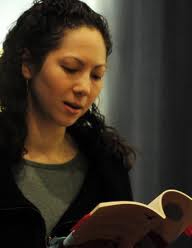Real Peace
Real peace means no war, of course.
But real peace demands so much more
……..than no war.
Though no war is an excellent
……..beginning.
Peace requires no fear of war.
The physical body must be safe.
There is more than adequate food,
……..shelter, attire.
And there is no worry that any one—not
……..to mention all three—will disappear.
This physical body gets preventive
……..medical and dental care and
……..treatment when needed.
And there is no worry that benefits will
……..be reduced or exhausted nor service
……..denied.
The mental body must be at least equally
……..safe; some might argue safer.
Peace provides space for education,
……..a good, solid education full of
……..knowledgeable teachers who
……..recognize the humanity of all and do
……..not see differences as inferiority.
……..Questioning without fear of
……..repercussion is ever the case.
Peace also allows spiritual development
……..of any and every variety.
Again there is no fear.
The stress created by the lack of any one
……..of the above can shatter peace,
……..shatter peace overtly or maybe simply
……..covertly, but shatter peace nevertheless.
……..And all of us are not always like the
……..oyster; the stress does not always
……..result in our creating pearls though
……..this stress may indeed make us shells
……..of ourselves.
Finally, real peace allows us to pursue
……..happiness as we see fit when that
……..pursuit harms no one.
And opportunity and justice permeate
……..this paradise.
The ever-present governor without
……..exception recognizes that no pursuit
……..of the ultimate personhood and real
……..peace diminishes another or the
……..other.
This poem was written for the Abe Keller Peace Fund, 11/22/12. “The Abe Keller Peace Education Fund was organized in 1998 to address peace-education needs in the Puget Sound community through fund-raising and grant-making for worthy peace-education activities.”
Georgia S. McDade lives in Seattle. The charter member of the African American Writer’s Alliance (AAWA) began reading her stories in public in 1991. She regularly contributed opinion pieces for Pacific Newspapers, especially the South District Journal, and reported for KBCS (91.3 FM). Emphasizing that “Good writing can force us to think and think critically; we can theorize, organize, analyze, and synthesize better,” McDade conducts writing workshops. Her works include Travel Tips for Dream Trips, about her six-month, solo trip around the world; Outside the Cave and Outside the Cave II, collections of poetry; and numerous essays and stories.

